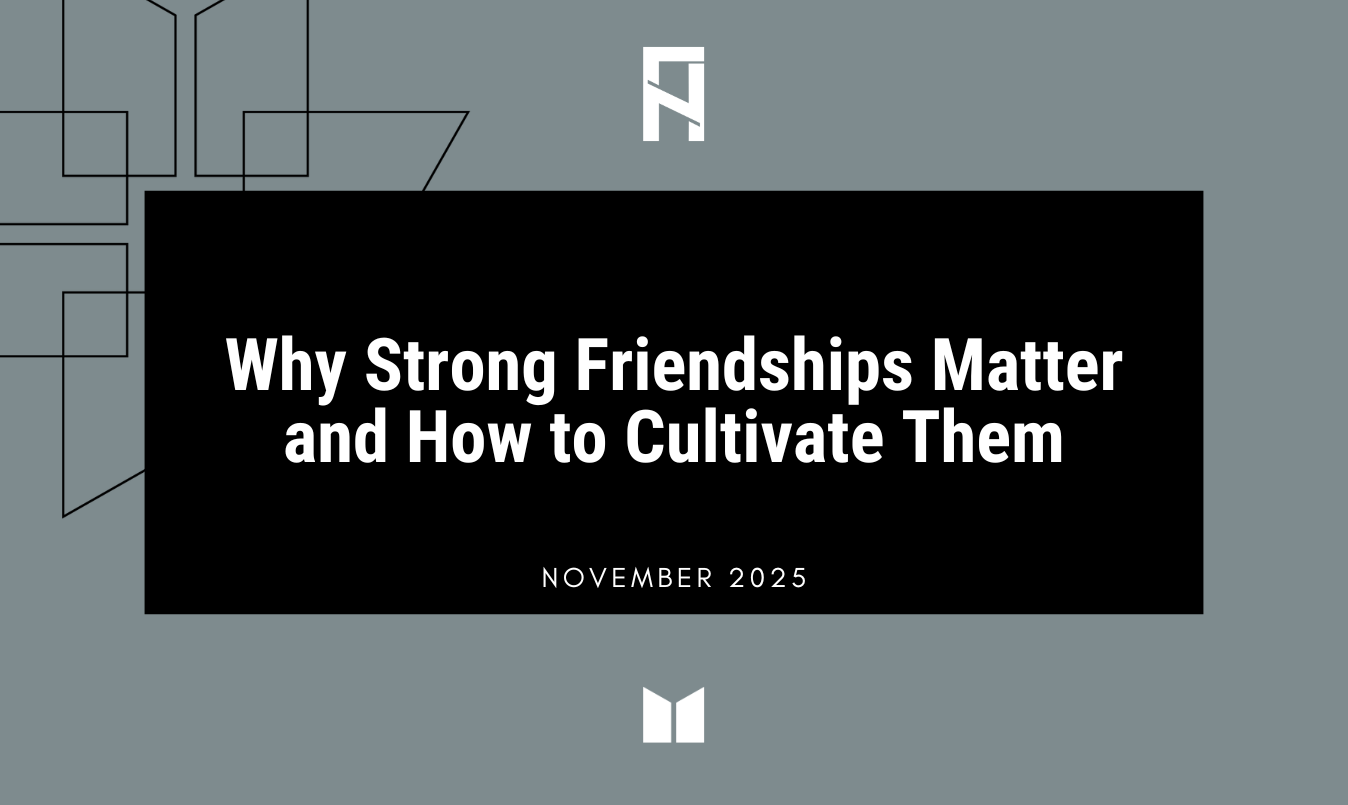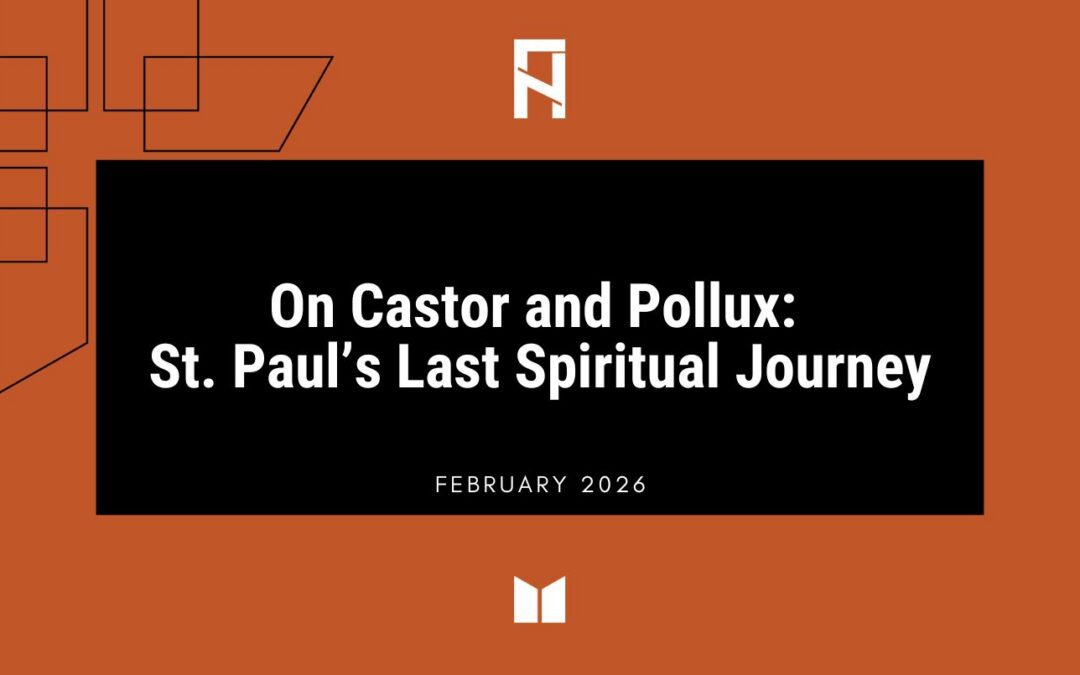In a world fraught with many mental and spiritual challenges, people often grapple with loneliness and isolation — a phenomenon usually referred to as a “friendship recession.” For young men of faith, having strong friendships is more than a social luxury. These bonds are essential for mental and spiritual well-being.
Consider the importance of strong friendships to gather some practical, faith-centered strategies for cultivating meaningful, platonic relationships that can uplift and support you through life’s challenges.
The Crisis of Loneliness
In recent years, many of you may have experienced a shrinking social circle, leading to a troubling trend of loneliness and a reduced ability to rely on others for support. Societal expectations further exacerbate this situation by often discouraging emotional vulnerability, making it more challenging to forge deep connections. As a result, you may find yourself feeling disconnected, which can take its toll on your mental health.
Loneliness and social isolation are foreign to the human brain’s conditioning, meaning these habits may significantly increase the risk of anxiety and depression, often causing you to withdraw further. Withdrawing may only create a vicious cycle that can further alienate you. However, the pressures of modern life, including career demands and masculine societal norms, can make it tough for you to reach out and seek support.
As a result, the lack of meaningful friendships can negatively impact your emotional well-being and hinder your ability to navigate life’s challenges. It is imperative to address this crisis to foster healthier, more supportive friendships.
Friendship’s Role in Faith and Mental Health
The Bible emphasizes the importance of friendship in Ecclesiastes 4:9, stating that two people are better than one, as they can help each other succeed. It is not God’s design for you to be isolated or feel lonely. Within a faith-based community, friendships provide a form of support rooted in shared values and purpose, creating an environment where individuals can grow spiritually alongside one another.
These relationships provide accountability, encouraging friends to pursue personal goals and deepen their faith. For instance, having a friend to pray with you or discuss spiritual challenges can enhance your commitment to growth. Strong social ties can also improve mental health outcomes, as friendships can alleviate feelings of loneliness and provide emotional support during challenging times. For example, participating in a group workout can lower stress levels by up to 26% and give a sense of social connection.
Friendship is a God-given tool and joining like-minded peers in group activities can make navigating life’s challenges and potential mental health issues easier. Ultimately, nurturing these bonds will enrich your personal life and mental well-being while also strengthening the entire faith community.
Practical Ways to Build Lasting Friendships
Cultivating strong and enduring friendships requires making an intentional effort to engage meaningfully with others. When you develop these types of connections, you’ll likely find your mental, emotional and spiritual well-being will flourish. There are ways to begin the journey toward building lasting connections.
Engaging in Community Through Shared Activities
Some argue that women form stronger bonds by communicating openly with each other and offering more emotional support than their male counterparts. Part of this difference could be due to the higher baseline levels of the oxytocin hormone — the “love” or “bonding” hormone — in females. Some men may say that the kind of bonding women do is difficult. However, that doesn’t mean it should be an intense struggle in the right environments.
Men often bond “shoulder-to-shoulder” through shared interests and activities, so finding a peer group with common ground through your interests is a great starting point. Whether it’s joining a local gaming league or sports club or participating in a group fitness class, these shared experiences create opportunities for deeper connections and support. Finding these groups within your faith-based community will further aid the process.
Being Intentional Within Your Faith Community
It’s essential to move beyond surface-level conversations often found after Sunday services if you want to cultivate a strong friendship. Engaging more deeply within your faith community can lead to stronger, more meaningful bonds. Consider joining a small Bible study group, volunteering for a ministry or simply inviting an acquaintance from church out for coffee.
These intentional actions foster an environment where new friendships can flourish. You must make the effort to deepen relationships without being overbearing. It’s not enough to rely on chance encounters, so enrich your spiritual and life journey by actively participating in community activities to create opportunities for connections and support.
Practicing Vulnerability and Transparency
In the past, cultural norms may have pressured you to constantly appear strong and self-sufficient, which can hinder the development of genuine, deep friendships. However, times are changing. As greater sections of society practice transparency and openness, you’ll find more of your peers opening up about their struggles and imperfections. Practicing vulnerability is no longer equated to weakness.
Rather, being open is often seen as an act of showing trust and being honest — admirable qualities that build intimacy and allow others to offer genuine support. Sharing personal challenges and being open about your feelings can create a safe space that encourages others to do the same. This mutual transparency helps foster deeper connections and strengthens the bond between friends, making it easier to deal with life’s challenges together.
Strong Friendships — The Key to Unlocking Mental Wellness
Building strong friendships takes effort, but finding true friends is one of the most rewarding investments you can make for your mental wellness. Connections like these provide essential support and companionship, mutually enhancing the overall well-being of all concerned. Challenge yourself to take a small step — whether it’s reaching out to initiate a new friendship or growing an existing one. Remember, every meaningful relationship starts with a simple gesture. Your small action could lead to a lasting bond that enriches your life.






